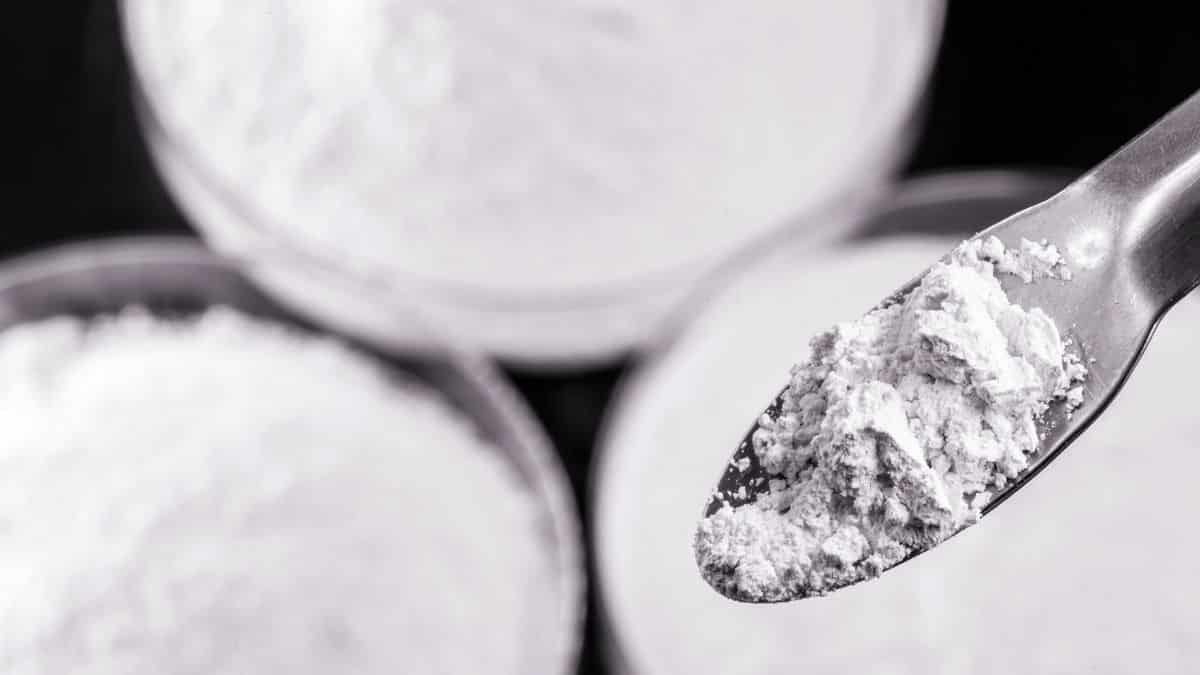Answer: Yes. Calcium chloride is a vegan ingredient. It is usually produced through the purification of brine, and it has no animal by-products.

Is Calcium Chloride Vegan?
Calcium chloride is a colorless inorganic compound, and it is readily soluble in water. And is it vegan-friendly? The answer is a resounding yes!
But before diving into details further, it is essential to know a few things about calcium chloride.
What Is Calcium Chloride?
Calcium chloride is salt and is used as an additive in food.
It is also a desiccant, which means we use it as a drying agent. Calcium chloride in food helps absorb moisture, creating an environment with plenty of bacteria.
Calcium chloride is also used to maintain firmness, reduce decay, and prevent diseases in fruits and vegetables.
How Is Calcium Chloride Produced?
The production of calcium chloride involves three methods.
- Calcium chloride is extracted from limestone.
- Calcium chloride is also extracted from natural brines. More specifically, it is a by-product of synthetic soda ash.
- Calcium chloride is also extracted from hydrochloric acid.
The Use Of Calcium Chloride In Vegan Products
Calcium chloride has a wide range of uses. It is used in non-food industries like construction, automobile, medicine, mining, etc. But more importantly, it is extensively used in the food processing industries. You can find it in almost every packaged food, like pickles, chips, frozen fruits, etc.
Calcium chloride is also found in canned products like soft drinks, fruits, vegetables, sports drinks, etc.
Controversies About Calcium Chloride Being Non-Vegan
Like many food additives, calcium chloride vegan status has sparked some debate. While calcium chloride itself is not derived from animal products, some vegans raise concerns due to its sources. One common point of uncertainty lies in its primary source: limestone, which forms from the remains of plants and animals. This origin leads some to question whether calcium chloride truly aligns with vegan principles. As we move into 2025, these discussions continue as more people seek clarity on whether calcium chloride is suitable for a vegan lifestyle.
However, this assumption is highly contradictory, given that sodium chloride is an essential nutrient in almost any food. For example, it is a crucial mineral that balances beverages and is used in many coagulation products. And the remains of plants and animals are not plausible because it is a matter of millions of years.
Another critical thing to remember is that no animal is harmed during the limestone extraction process. So should calcium chloride qualify as non-vegan? That is up to you to decide.
Another concern many vegans have is that animal testing is carried out when producing calcium chloride. Although the assumption is not based on hard evidence, it is still plausible because animal testing is a severe topic for vegans.
Therefore, some of the concerns raised by vegans on whether calcium chloride is vegan or non-vegan. They may seem a little pointless; nonetheless, you cannot disregard the suspicions and assumptions.
Are There Any Health Benefits of Calcium Chloride?
Calcium chloride is an essential requirement in a wide range of food products. It has a lot of health benefits. For example, calcium chloride used in sports drinks acts like an electrolyte that helps your body maintain body fluids in balance.
Calcium chloride is an essential nutrient that helps your nerves and muscles function normally. It helps strengthen your bones and regulate heartbeats. It also helps your body absorb essential nutrients and minerals like water, amino acids, and sugar.
What Are the Adverse Health Effects of Calcium Chloride?
Despite the many health benefits of calcium chloride, it also has a negative impact on health. However, calcium chloride’s adverse health effects through food products are minimal compared to non-food-related calcium chloride.
Consumption of excess amounts of calcium chloride can give you throat and mouth burns and nausea. Nausea also causes vomiting depending on the severity, and it also causes your blood pressure to rise.
Despite the notion that calcium chloride is vegan, other precautionary measures must be taken before consuming it. Because even if you are a vegan, you still need to ensure that you don’t have any breathing-related problems. The intake of calcium chloride worsens the condition.
Calcium chloride is also believed to affect insulin resistance. And if you have diabetes, it is not a good thing. The increased calcium chloride intake also puts you at a greater risk for heart attack.
What Are the Alternatives for Calcium Chloride in Food?
If you want to avoid calcium chloride for vegan reasons, you can always try some alternatives:
Sea Salt and Rock Salt
Chefs widely use sea salt and rock salt because they often look like premium quality salts. And there are also claims that they taste better than common salt.
Potassium Salt
The potassium salt is another excellent alternative to calcium chloride. However, there are some things you need to keep in mind before you try it.
Potassium salts have a metallic taste and are considered to have a very salty flavor. And for people with pre-existing kidney problems and diabetes, the potassium salt is not advisable. So if you have any of these problems, it is best to consult your doctor first.
Iodised Salt
Iodised salt is another excellent alternative to calcium chloride. Iodine is considered an essential mineral for health. And because it is a mineral not present in most of the food you consume, having it on salt is a great way to supplement your body with the mineral.
Conclusion
In conclusion, calcium chloride is safe for vegans. Not many plausible arguments can make one believe that it contains non-vegan elements. The extraction and manufacturing process do not have anything to do with animals and their well-being. You don’t have to worry if you find calcium chloride as an ingredient in your food.




